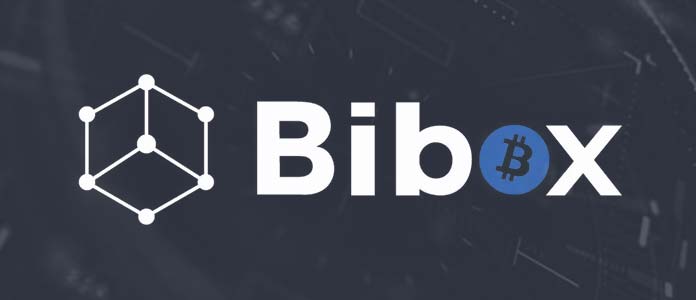Cryptocurrency Investing
Best Bitcoin Wallets Online: 2018 Top Cryptocurrency Storage Types?
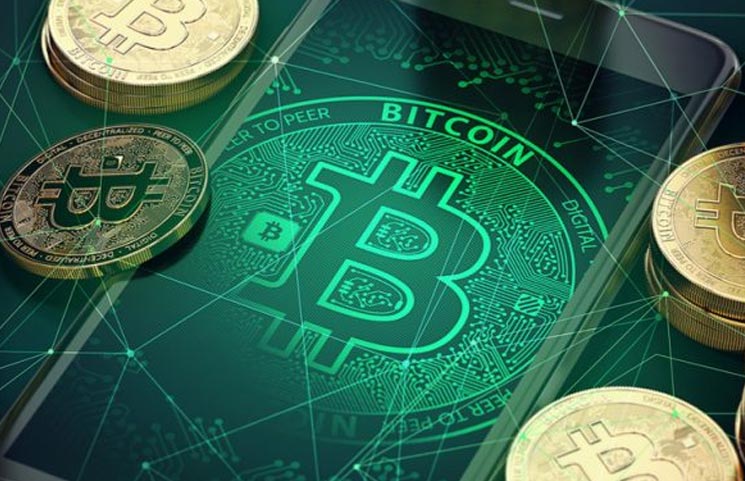
Complete Guide to Online Bitcoin Wallets
If you’re reading this, chances are you’re just investing in bitcoin and would like to know the best bitcoin wallets and how to store your bitcoins so it doesn’t get lost or stolen.
This is completely important considering that your bitcoin’s security is just as important as that of your bank account. Besides, you do need the wallets to be able to trade or receive bitcoins.
Bitcoin wallets are essentially the bitcoin cryptocurrency version of your bank account. It is to bitcoins what bank accounts are to cash or traditional currencies. With bitcoin wallets, you can receive, send and store bitcoins for as long as you have them.
However, you need to keep those wallets safe and protect them from being stolen. This is particularly important seeing as the one major mistake that most newbies make when they start investing or trading in bitcoins is laxity about their bitcoins’ security.
This seemingly simple oversight can lead to huge losses as the accounts can be hacked and the wallets emptied. We’ll be talking about security measures for your bitcoin wallets later on.
Table Of Contents
The Bitcoin Wallet
Upon signing up for your bitcoin wallet, you’ll get both a public address and a private key. Think of these in terms of your bank account number and your PIN.
The public address is the information you give out when you want to buy your bitcoins, and the private key is what you’ll use to verify and complete transactions, in pretty much the same way as your ATM PIN.
So, if I want to send you some bitcoins, I’ll send it to your public address. But, if you want to send your bitcoins to “cold storage” –another term for taking them off the PC or web- your private key is what you’ll use to encrypt your wallet. This way, no one will be able to access your account except you.
Always keep your private key safe. Without it, you could lose all your bitcoins. And under no circumstances, should you give out your private key. Doing so leaves you vulnerable and subject to hacks and theft. The private keys are for you and you alone.
Now that you know what bitcoin wallets are, let’s move on to the various types.
Types of Bitcoin Wallets
Bitcoin wallets can be either software or hardware. Both of these have their merits and demerits.
Hardware Bitcoin Wallet
Unlike the software bitcoin wallet that’s somehow connected to the internet –it’s either on your PC, the web or your mobile device- the hardware bitcoin wallet is one that’s completely disconnected from the internet.
This means, it’s not stored on any device that can access the internet. Think USB devices, thumb drives and external drives… only these ones are specially designed and manufactured for the sole purpose of keeping your bitcoins safe.
These devices are standalone devices that add further layer of protection to your bitcoins and ensures their increased safety.
Because they aren’t on internet connected devices, they are less prone to the vulnerabilities of software wallets and can be the safest way to store your coins. Examples of good hardware wallets include KeepKey, Ledger Nano S and Trezor.
Software Bitcoin Wallet
The software wallet usually comes in various forms. For instance, it can either be in the form of a downloadable app that you’ll have to install on your mobile device or PC, or the form of a web wallet also referred to as an online wallet.
The latter is a web based wallet that’s often hosted by third parties such as a cryptocurrency exchange service or platform. With the software wallets, your security is solely in your hands.
Therefore, you’ll need to implement strong PC security measures to prevent hacks and losses as well as minimize your computer’s vulnerabilities.
Anything that will compromise your computer’s security must be fixed or eliminated. Online wallets on the other hand, requires complete trust in a third party, which is why you must carefully choose your bitcoin exchanges.
These exchanges automatically help set up your bitcoin wallet upon signing up with them, thus, essentially eliminating the hassle of creating your own wallet. However, even though the web wallet promises ease of use, we do recommend that you set up your own independent wallet.
Software wallets, even when independent, are alternatively referred to as “Hot Wallets” because they are connected to the internet and can be stolen by hackers.
The good news is that with your independent wallet in place, you can easily move your bitcoins to them, further limiting the risk of being exposed to hacking attempts on the exchanges as well as securing your bitcoins yourself. This is important in the face of growing hack attacks targeted at web based bitcoin exchange platforms.
Best and Popular Online Bitcoin Wallets
For most beginners who are just getting their feet wet in the cryptocurrency markets, online bitcoin wallets are the most convenient. For these, all they have to do is sign up with the exchanges they prefer and they’ll get an automatic wallet set up for them upon signing in.
In this section of this guide, we’ll be looking at the most popular online bitcoin wallets.
-
Coinbase
This by far, is the most common online wallet available to beginner cryptocurrency traders and investors. Coinbase essentially gifts you with a new web wallet when you sign up. This way, you can easily be up and running in under 10 minutes.
With this wallet in place, you can easily receive and end bitcoins through your mail, trade bitcoins or exchange them for other altcoins on the same platform. This is available both on the PC and in form of a mobile wallet that’s downloadable from Google Play Store.
The app is very user friendly, provides access to the various altcoins and makes transactions easy. With Coinbase’s mobile app, you can easily trade on the go, thus eliminating the need to be tied to a PC to buy and sell bitcoins or other altcoins.
Coinbase is very reputable and provides a very secure platform where your online wallet can reside. In fact, Coinbase’s reputation and popularity is hinged on the fact that they have never been hacked since inception.
Sure, hackers have made multiple attempts to hack them when they were hacking other more vulnerable exchanges, but they never succeeded. This is because they take their security very seriously and have put incredible checks to deter criminal activities on the exchange.
They also offer direct exchange from USD to bitcoin, which is why people prefer them to other exchanges. The few downsides to Coinbase is that because of their popularity, registration and verification can take anywhere from 2-7 days.
Even then, registrations are only allowed from select countries. Also, because of the volume of trades executed on the platform, users might have to wait a while to get their bitcoins upon ordering -12-24 hours isn’t unheard of.
The transfer fees are also about 1 percent. When you’re transferring $100, it may not seem like much, but when you are transferring $30,000, 1 percent can seem like a lot of money to charge for transfers.
Signing up is very easy, and requires the linking of your bank account, credit or debit card to your Coinbase wallet so you can purchase bitcoins directly. Once your funds are cleared and the transfer goes through, your wallet will be funded and you will be able to buy bitcoins on Coinbase.
-
Electrum Software Wallet
This is a PC based wallet that provides extra security for your bitcoins on your computer.
Available on Linux, Mac and Windows PCs, all you have to do is setup your account after installing the software –a very easy process that simply involves pointing and clicking- and you’re set.
Part of your account setup process is the provision of a twelve word phrase which you must copy and store safely. We recommend storing this in a safe place either on paper or elsewhere on your PC.
This 12-word phrase is what you’ll need to get your bitcoins back in the incredibly rare event of a computer loss or disk failure. Without these words, you will lose your bitcoins. So, keep them safely.
This software also comes with an encryption technology designed to keep hackers and cyber criminals at bay. With this in place, you will not fall victim to the fraudulent actions of these dodgy individuals and organizations.
If you’re just starting out with the buying and selling of bitcoins, this is a must have software for guaranteed bitcoin security and safety.
-
BitGo
Another fantastic bitcoin wallet, BitGo runs on high level security technology that keeps your bitcoins safe. It does this by utilizing something a multi-sig wallet. This is simply a wallet that requires multiple keys/signatures –somewhat similar to joint or corporate bank accounts- to access the wallet.
In its case, the wallet uses a 2-of-3 key model. What this means is that of the three keys available, two are always required in order to access the wallet. Bitgo itself keeps one, the user keeps one, and the third key is kept in an offline location.
With this in place, it means all you need to always access your account is two of those keys. This multi-sig technology puts the necessary checks and balances in place that will help ensure that even if someone by some stroke of ill-luck stumbles on your key, they wouldn’t be able to find the Bitgo key or the offline key.
Bottom line, your wallet will always be safe, unless you’re super careless. And in the event of Bitgo itself being unavailable, users would still be able to retrieve their bitcoins through their personal and offline keys.
Bitgo also provides extra security measures like audit logs –a history of user logs, address whitelisting –if you whitelist only your IP address, no one from another IP address would be able to login, and spending/withdrawals limits.
Users who are super keen on their security can always opt for the premium Bitgo account which gives them access to BitGo Promise. This is basically an insurance policy designed to compensate you in the event of your bitcoin loss.
-
Blockchain.info
You know how we talked about Coinbase earlier? Well, this is a simpler and less complicated platform. Unlike Coinbase, all you have to do is fill out the necessary details and you’re good to go.
The verification is near instant, which means it doesn’t take 5-7 days to verify your account. This makes it great for those who want to start buying or selling bitcoins immediately after getting their wallets.
Another added advantage of this wallet is that you can access from anywhere in the world, unlike Coinbase that can be locked to your PC or IP address. With the Blockchain.info wallet, trading bitcoins becomes easier regardless of your location.
Also, they don’t limit registration to select countries, unlike Coinbase that limits its membership base to certain countries. So, if you’re looking for a good Coinbase alternative, Blockchain.info just might be the right choice.
-
Bitcoin Wallet for Blackberry and Android
You should be able to access your bitcoins wherever you are, preferably on your mobile device. This is what bitcoin wallets for android and blackberry devices offer. They offer the ability to use your bitcoins wallets on your mobile devices.
This makes it incredibly easy for you to buy and send bitcoins right from your mobile phones wherever you are. Users of these wallets will find their convenience very welcoming. These wallets also work with phones with QR code reading functions and NFC technology.
With these, sending bitcoins to people is easy as a pie and eliminates the need issuing a check or carrying cash around for your purchases.
As with all important contacts, apps and messages on your phone, make sure to create backup versions of your bitcoin wallet –the wallets often come with backup features. This will help prevent any loss in the event of a data wipe on your phone or a stolen/broken phone.
Where to Buy Your Bitcoins
Once your bitcoin wallets are set up, it’s time to go buy some bitcoins. There are many options and places where you can buy your bitcoins from and store in your wallet. The more common ones include:
Bitcoin Trading Platforms and Exchanges
These are essentially exchanges that offer you the chance to buy or sell bitcoins as well as other exchanges. Some of the more popular ones include the aforementioned Coinbase. Another popular one is Binance, KuCoin and Coinrail.
These are just some of the trading platforms and exchanges out there. There are a quite a few more of them. These three though, seem to be more secure and protected from hacks and data losses.
BitInstant and Zipzap
These two are a partnership designed to help accelerate the bitcoin purchasing process. ZipZap acts as the cash deposit station, while BitInstant, converts the cash deposit into the bitcoin equivalent.
With this option, all you have to do is locate a cash deposit station, make your payment, and expect your bitcoins in your wallet within a few hours. While they provide a sorely needed service, there’s the attendant downside of relatively high service charges.
For instance, ZipZap bills your $3.95 for taking your deposit and sending them through to BitInstant, which then charges four percent of the total amount deposited before crediting your bitcoin wallet with the remaining equivalent.
Naturally, these high fees and hoops have made it somewhat unpopular. However, this takes nothing away from their solid reputation for flawlessly handling your cash and funding your account.
So, if you don’t want to use your credit/debit cards to purchase bitcoins, and would prefer cash deposits, this is probably the best option to explore.
LocalBitcoins.com
While you can buy bitcoins directly from the abovementioned sources, there’s another way to go about it: utilize a site that links buyers and sellers in a manner similar to a classified site. In these sites, buyers and sellers list their willingness to buy and sell as well as how much they are willing to sell.
This is the service provided by localbitcoins.com. Buyers don’t necessarily have to indicate that they want to buy. They can just simply view those who are willing to sell and at what price, contact them and schedule a meeting place where the transaction will take place.
With this, there’s no third party or anything, which means you don’t worry about longer transaction times. You just meet up, pay the person cash and they’ll transfer the amount of bitcoins you’re buying directly from their wallet to your wallet.
This process is pretty simple, always make sure to meet in public places and stay safe. The good thing about localbitcoins.com though, is that there’s a ratings system that helps you identify the more reputable sellers on the platform. This way, you can simply select from the best sellers on the platform and reach out to them.
Alternative Bitcoin Exchanges
The reality is there are many other exchanges where you can buy and sell bitcoins. Th ones that are listed above are just some of the more popular ones. Look for those that are closest to you and have local relevance.
For instance, certain exchanges are more relevant to your geographical location than others. Two good examples of this include the EU based and locally relevant BitStamp as well as the Russian based bitcoin exchanges.
All of these tend to offer highly secure bitcoin wallets too. But if you don’t want to leave anything to chance, try using Armory or Bitcoin-Ot. They’re setup is a little more complicated than the others, but they compensate with incredible security for your bitcoins.
How to Receive and Send Bitcoins
The process of receiving and sending bitcoins is very simple. Now that you have your wallet in place, the rest is simple, really. To receive bitcoins from anyone, all you have to do is send them your bitcoin wallet address, and they’ll send the bitcoins to you.
You will receive them within a few hours of them sending –could be minutes depending on the network and confirmation times, so don’t be afraid if the funds don’t show up immediately.
The process is similar for sending bitcoins to other people. All you need is their bitcoin address, which you’ll enter into the required field, followed by the amount you want to send –you’ll see the USD equivalent- and click send.
That’s all there is to it. You may be asked to confirm if you want to send, just click yes, and the funds will go through.
Make sure to double check the wallet address you’re sending the funds to or giving out to receive the funds, as all bitcoin transfers are final and irreversible. This is important as bitcoins will not provide you with the personal details of the account holder.
So, if you send to the wrong address, that’s it. You will not get those funds back –unless they’re feeling charitable and altruistic.
Sent funds will often take a while before they reflect in your account. This is because it takes a while for the funds to clear. So, don’t worry if the changes in your balance doesn’t show up almost immediately.
Security Tips for Protecting & Keeping Your Crypto Safe
The security of your bitcoins are just as important as your acquiring, keeping and trading them.
Most beginners are typically lax about their bitcoin wallet security. Poor security and carelessness are singlehandedly responsible for over 70 percent of all lost or stolen bitcoins. This is why you must take extreme measures to keep your bitcoins safe.
So, be smart about your bitcoin security and start by back them up using the multiple backup options available. This way, if your computer fails or your wallet is hacked, you would still be able to recover the lost coins.
This is because, backing up your bitcoins and transferring them to cold storage means they cannot be accessed unless you are directly accosted and have no choice but to give it up.
Secondly, create backups of your wallet address, keys and password. Write them down if you will or copy them to other documents and store in a separate device. This way, if you lose your data, there’s always other options that you can fall back on.
Top Cryptocurrency Wallets
In this section of the guide, we’ll be examining the top cryptocurrency wallets and how you can use them to buy, send, receive and store cryptocurrencies.
Exodus Wallet
This wallet is designed to store bitcoins are well as other cryptocurrencies. While here’s a limit to the altcoins it can store, the list of currencies it can store is enough to make it of the best and most popular cryptocurrency wallets.
Exodus is integrated with ShapeShift which helps convert and exchange cryptocurrencies almost instantly.
This completely eliminates the need for moving your coins to an exchange first and converting them into another form before storing them in your preferred currency format.
So, if you have bitcoins now and want to convert it to Ethereum –another altcoin- before storing it, ShapeShift which is embedded in the Exodus Wallet can help you do that.
It is a PC based desktop wallet that makes it easy to store your bitcoins. It can be installed on Linux, Windows and Mac OS computers. Linux and Windows users though, would have to do it on 64-bit computers, as it’s not compatible with 32-bit PCs.
You can store all of the following cryptocurrencies on the Exodus Wallet:
- Bitcoin (BTC)
- Gnosis (GNO)
- Ethereum (ETH)
- Ethereum Classic (ETC)
- OmiseGo (OMG)
- Litecoin (LTC)
- Qtum (QTUM)
- Dash (DASH)
- Basic Attention Token (BAT)
- Golem (GNT)
- Civic (CVC)
- Augur (REP)
- SALT (SALT)
- Decred (DCR)
- EOS (EOS)
- FunFair (FUN)
- Aragon (ANT)
- District0x (DNT)
To download the wallet, go to www.exodus.io to download the wallet.
Electrum
We already talked a bit about this earlier. Let’s explore this a little further. As earlier mentioned, this is a desktop and mobile based wallet that’s runs on Mac OS, Linux, Windows and Android platforms.
It also doubles as a cold storage wallet where you can move your bitcoins and never have to worry about anyone hacking or stealing your bitcoins. It is currently considered one of the world’s safest and most secure bitcoin wallets.
Electrum conveniently integrates with hardware wallets Ledger Nano S and Trezor. These hardware wallets are currently the most popular and secure hardware wallets available for protecting select cryptocurrencies.
Installing Electrum is a pretty straightforward process. You will download the installer from www.electrum.org, and install like you would any normal software. Once done, you would have to run the software and setup your wallet.
Upon creation, you would be asked to choose either Standard Wallet or Wallet with 2-Factor Authentication (2FA). Just choose the Standard Wallet for now. Generate your backup key –this is a twelve word key that you’ll use to recover your bitcoins in the event of computer or mobile device loss- and store it away safely.
Naturally, the software will want to confirm that you got the 12 words right, so you’ll need to re-enter it and confirm it. After this, you’ll need to generate your password to further secure your account.
Receiving your funds into this wallet simply requires clicking the “Receive” tab to generate your unique wallet address, copying it and sending the funds to that address.
Sending funds from the wallet follows pretty much the same process as you would send from any other wallet. Whatever you do, just make sure that your wallet is safe and secure and you don’t leave your 12-word sequence and password lying around for anyone to pick up.
That’s pretty much all you need to get started with, install, use and secure your bitcoin wallets. If you follow the tips and steps outlined in this guide, you will find securing your bitcoins and the wallet creation process easy and straightforward.
Cryptocurrency Investing
MetaMask: Ethereum ERC20 Token Wallet Browser Extension Beginner’s Guide
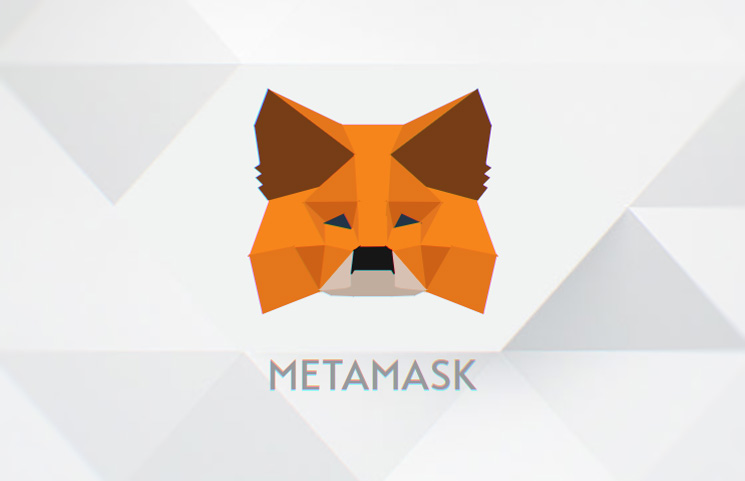
The Beginner’s Guide to MetaMask
For those new to Ethereum or perhaps even cryptocurrencies in general, the name MetaMask has probably already popped up in conversations. MetaMask is essentially a browser extension, and acts both as a wallet and access point to the Ethereum network. Explained even simpler, MetaMask is a hot wallet.
On the blockchain cryptocurrency networks, users can opt for a hot wallet (“live” or actively connected to the network) or a cold wallet (disconnected from the network). A wallet is necessary to store personal altcoins off exchanges or anywhere else after trading or transacting.
Although many early exchanges act as a bank for digital traders, current wisdom dictates that users maintain their funds offsite. In addition, a user will very often need to fund a trading account from a wallet, as many don’t allow for fiat or legacy payment protocols.
There are pros and cons to both, and current trends see most users employing the duo as their needs dictate. A hot wallet can be accessed and pilfered through phishing or user error, whereas a cold wallet is dead to the network, allowing no access at all. A cold wallet is also sometimes called a vault, as it’s silent, secure and access-restricted.
Many users will encounter the name when looking at ICOs, because ICOs are dominated by the ERC-20 token protocol. ERC-20 is a “type” of token, developed and employed on the Ethereum network, that has proven the most malleable and compatible token structure for crowdfunding purposes. The vast majority of ICOs, while employing their “own” tokens, are actually building those tokens out of the ERC-20 protocol.
MetaMask Details

Looking at a few nuances of the wallet, since it is an organic build from the Ethereum network, the MetaMask wallet will only hold ETH coins and other ERC-20 tokens of whatever origin. Bitcoin, for example, cannot be held in a MetaMask wallet.
The other major component of MetaMask is that it is a gateway to the Ethereum network. What this means is that all of the network’s dapps are available to use for MetaMask wallet holders. Dapps are “decentralized apps” and so named because their backend code is running on a decentralized network, in this case the Ethereum network.
If dapps seem obscure, examples would be the game Cryptokitties or casinos like Etheroll, a marketplace like OpenSea and of course digital exchanges like ForkDelta and IDEX.
Without a middleman like MetaMask, a PC’s browser can’t access the Ethereum network. Not unless a user runs a “full node” and installs the whole 400GB Ethereum blockchain on their PC.
The reason why MetaMask is known as a browser extension is because MetaMask injects a javascript library in your browser page. The javascript is called web3.js and written by the Ethereum development team.
Installation and Setup Of MetaMask

MetaMask is “open source,” which means anyone can view the code on GitHub. Currently, MetaMask functions on the FireFox, Chrome, Brave and Opera browsers. Links to MetaMask extensions for all relevant browsers are readily available on the MetaMask homepage. Once installed, the MetaMask logo will appear in the top right of the screen. Chrome, for one, will typically ask you to enable an extension, but these steps are all linked and users are done with a MetaMask installation in a minute or two.
Users don’t require a username when registering a MetaMask wallet, only a password. With MetaMask, a user’s password is called a “DEN.” although a clever play on words, since the logo is a fox’s face, although this appears to be more coincidence than any deliberate naming.
After creating a password, users are issued with a unique 12-word “seed phrase.” This is a bunch of words employed to safeguard a user’s account. It’s recommended that users stash their seed words in a competent password keeper like LastPass, or similar apps. Users can also generate multiple MetaMask accounts. Every account created by a user with MetaMask will share seed words and the password, but will have a different address.
Transacting With MetaMask

Paying someone or otherwise dispatching tokens from the MetaMask wallet is a simple matter. A single click on “Send” allows users to populate the subsequent screen with a user address. Send the funds and the transaction is done, and users receive a confirmation once the transaction is completed.
When interacting with dapps using MetaMask, provided a user is logged into their MetaMask account, they can access Ethereum network dapps automatically through their browser. Logging into a dapp like OpenSea, for example, the decentralized outlet for crypto collectibles, the dapp notes a user’s MetaMask address. There is no need to log into dapps separately, as the network has user intel integrated, recognizing an account holder wherever they go on the Ethereum blockchain.
MetaMask is free to use, users paying only the “gas” cost – the base cost of transacting on the Ethereum network. Gas is the fee required to effect any transaction on the Ethereum network. It is denominated in “Gwei,” one billionth of an ETH. Looking at overall UX, MetaMask is a reputable offering, with good support and a welcome absence of any dark press.
Protecting Your MetaMask Account
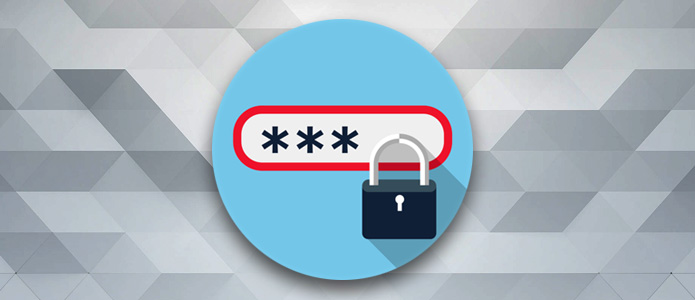
How Safe is MetaMask? In the world of cryptocurrencies, security is top of the list. Constant hacks and successful phishing attempts keep making the papers, while legislators are still battling to bring regulation up to the same level as legacy fintech. Since cryptocurrency thefts cannot be undone by identifying the thief and reclaiming funds, users should always have security uppermost in their minds when employing their MetaMask wallet.
It is advised to log out of a MetaMask account when it’s not being used. When a user is logged in, the account is considered “unlocked” and more vulnerable than when shut down. Open MetaMask accounts enable crooks to glean a user’s wallet address, token types, the wallet balance and especially transaction history.
Don’t be fooled into thinking that phishing can only happen via mail, however. Users should be aware of suspicious pop-ups or other notifications while signed into their wallet, as this can also be indicative of a phishing attempt.
Things like irregular pop-ups that ask a user to sign for a pending transactions are high risk. So too are messages telling users that their last transaction failed, then rerouting the repeat transaction to a different address. Much like cyber criminals emulate bank UIs and present with all the right logos and all the right colors in place, so too have there been instances of phony interfaces emerging.
For the best secure arrangement, users would employ a cold wallet like Ledger or Trezor Model T. For human reassurance, keeping the bulk of one’s altcoin holdings in a cold wallet can’t be beaten. That said, MetaMask has never suffered a hack nor had other instances of bad, sad press around lost funds and theft. To date, the wallet is impervious, and user losses stem from phishing attacks for which MetaMask can’t be blamed.
MetaMask Conclusion
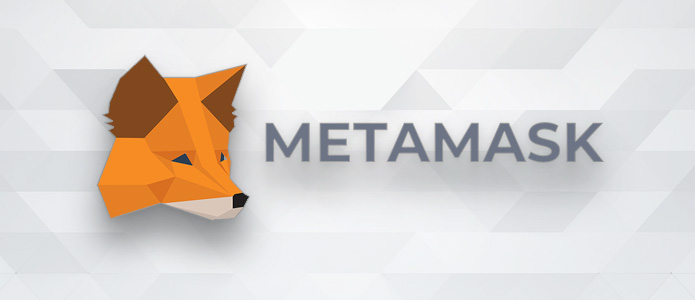
MetaMask is elegantly simple and easy to use. The wallet-stroke-network enabler has become the most popular and convenient route to navigating, paying and trading on the Ethereum network. Standing back and looking at the offer as a non-technical or, rather, non-crypto person might, as an offer it’s very simple and easy to install.
Even newcomers can quickly grasp the essence of it and get on with interacting on the Ethereum blockchain. MetaMask is intuitive and has been elegantly simplified because of its homegrown Ethereum nature. Any hot wallet, however, carries a higher risk than any cold wallet, and users should always have caution in mind when transacting via the wallet.
You can read more about MetaMask here: metamask.io
Cryptocurrency Investing
Top 6 Cryptocurrency Exchanges Using Own Coins For Reduced Fees

Best Cryptocurrency Coins Which Grant Dividend Or Reduced Fees In 2018
The cryptocurrency space has gained incredible momentum in the last few months. This is fueled especially by the existence of coins that not only earn dividends for the owners but also earn passive income while at the same time offering very low transaction fees.
Table Of Contents
6 cryptocurrency exchange coins and tokens that make money in the Crypto sphere are discussed below in detail.
KCS is a native token owned by KuCoin Cryptocurrency Exchange which is based out of Hong Kong. A total of 100 Million tokens of KCS were distributed during the KuCoin Initial Coin Offering (ICO) in 2017. KCS tokens are fundamentally ERC 20 tokens. The current value per token of KCS is US$ 4.78 and the market capitalization is approximately US$ 435 Million.
Holding KCS tokens is extremely advantageous for both Holders and traders. KuCoin Shares have a reward ratio for the holders. 10% goes to KuCoin, 50% goes to the KCS holder and 40% belongs to the referred individual. 10% of the Exchange`s profits are used in buying back the KCS and then burning the tokens. This means that KCS holders are further rewarded due to the appreciating prices.
Furthermore, Owners of KCS receive 50% reduction of the platform`s trading fees on all the volumes in the Exchange. Due to the referral system at the KuCoin Cryptocurrency Exchange, owners of KCS receive higher passive income.

Binance (BNB) Token
BNB is a native coin that is owned by Binance, which is one of the best cryptocurrency exchanges in the current Crypto market. Binance exchange was developed in China but relocated to Japan in September 2017. BNB has a current market value of US$ 11.82 and a market capitalization of US$ 1.3 Billion.
BNB is also an ERC 20 token with a fixed supply of 200 Million. During the Initial Coin Offering (ICO) in 2017, the BNB token was generated to fund the development of Binance Exchange. Owners of BNB token use it to pay for fees on the Exchange`s platform. These fees include withdrawal fees, Listing fees, Exchange fees and any other applicable fees.
Binance buys back 20% of BNB tokens in every quarter which the Exchange then burns until the total circulation reaches 100 Million. For holders of BNB, the total cost of trading at the platform is reduced by 50%. The owners of BNB also receive regular dividends when the BNB tokens are regularly burnt every quarter till the total supply goes back to 100 Million. The increased daily volumes at the Exchange further increase the benefits by providing an increased passive income.
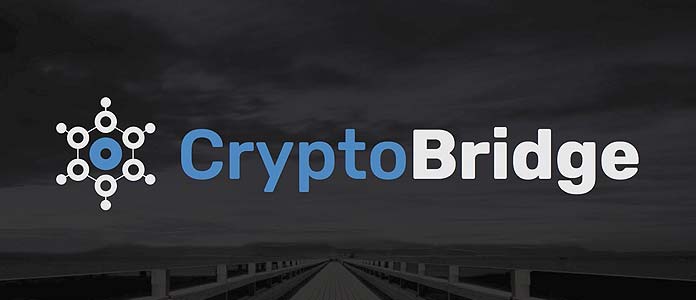
CryptoBridge (BCO) Coin
BCO is a native crypt-compatible coin created in July 2017. It is owned by the Decentralized Cryptocurrency Exchange (DEX) called CryptoBridge Dex which allows trading of most of the popular Altcoins. This Exchange utilizes the multi-signature federated gateway.
BCO coin is mineble and unlike KCS and BNB, it is not an ERC20 coin. BCO Coin has a current market value of US$ 1.64 and a market capitalization of US$ 45Million. Holders of BCO get 50% of the share bonus earnings of CryptoBridge Exchange when they stake their BCO coins.
For 3 months they receive 20% bonus, for 6 months they receive 50% bonus and for 12 months they receive 100% bonus. However, staking their coins for 1 month yields 0% bonus.
COSS Token
COSS is an ERC20 token that is owned by COSS Cryptocurrency Exchange located in Singapore. COSS exchange has matching features like Binance and KuCoin Exchanges. The Exchange is unique since it embraces plans of being a USD Exchange as well as payment processor.
The current market value of the COSS token is US$ 0.29 with a market capitalization of US$ 23 Million. The COSS Exchange retains and validates all the transactions that are initiated at the platform on the Ethereum Blockchain.
COSS has a great dividend program. The holders of the coin are paid 50% of the total earnings from the Exchange trading fees on a weekly basis. Additionally, holders can store their coins at the COSS Exchange platform or at an ERC20 enabled wallet such as MyEtherWallet.
CEFS token is another dividend earning token that is owned by the Cryptopia Exchange which is one of the most popular digital Exchanges trading numerous Altcoins. Cryptopia is headquartered in New Zealand.
CryptopiaFeesShares are very expensive and rare. The current market value is US$ 1,816 per token with a total supply of 6300 CEFS. The Cryptopia mining platform for cryptocurrencies is well streamlined and easy to use.
The holders of CEFS Token receive 4.5% of the monthly earnings from Cryptopia platform which is then distributed proportionately as per the CEFS holdings. Holding the token for longer periods leads to more returns.
Bibox (BIX) Token
BIX is a native token that is owned by the Bibox Exchange, an all enhanced-encrypted Exchange which was founded in China. It also has similar features like Binance. This exchange enables traders to trade numerous Altcoins. The exchange supports different languages like English, Chinese, Korean, Mandarin, Vietnamese and Russian. The Exchange is also unique since it has the capacity to trade cryptocurrencies while utilizing Fiat currency within the same medium.
The current market value of BIX is US$ 0.6 with a market capitalization of US$ 63M and a circulating supply of 105,918,066 BIX. The tokens are bought back and burnt regularly until the total supply reaches 271 Million.
Holders of BIX receive rewards in the form of fee reduction. BIX tokens have various uses especially in paying for the Exchange`s fees like Exchange fees, Listing fees and Withdrawal fees. The discount rates for using BIX are as follows: 50% in year one, 25% in year two, 12.5% in year three, 6.25% in year four and 0% in year five.
Our Final Thoughts
Conclusively, the best coin or token depends on the goal of an individual. For instance, an individual who is actively involved in trading is better suited to possess the BNB token while an individual whose purpose is passive income, then KCS is ideal. High volumes of the trading Exchanges will mean more dividends while the costs in trading and the referral systems will mean more passive income.
Cryptocurrency Investing
Top 5 Most Common Bitcoin & Cryptocurrency Scams in 2018

Cryptocurrencies have become a bit of hot cake. On one hand, lots of people are getting in and making a lot of money. Others are getting burned and losing their life savings in a bid to play in the markets and make a killing.
Most of those who do often invest in cryptos known as scam coins. These cryptocurrencies are designed to rip off people, and solely benefit their creators.
But because most newbies have no idea of how to identify the real moneymakers from the scams, many get burned, losing a lot of money in the process. This article is contains information on the more common cryptocurrency scams, show you how to identify them, and more importantly, teach you how to protect yourself, so you don’t get ripped off.
Types Of Cryptocurrency Scams
1. Cloud Mining Pools

Please understand that there are some legitimate cloud mining services out there. So, not all of them are bad. That said, this is one of the more common ways people lose their money.
These companies attract people who want to go into cryptocurrency mining, but have neither the time nor the money to buy and maintain their own cryptocurrency miners. So, these companies offer to help them mine, in exchange for a fee and a promise of the profits.
To identify the legit operations from the fraudulent ones, look for their registrants, company team lead and location. A major red flag is if you cannot find direct details when you do a whois lookup of their domain name.
But that alone isn’t enough. Look for transparency in terms of who runs what. Legitimate cloud mining services will have either their whois details available and/or information on the team managing the service.
Also be wary of companies registered in the US or UK, but with all team members resident abroad. If you cannot find a local address that’s verifiable, you might want to keep your money as that’s another red flag.
2. MLM Cryptocurrency Organizations

These are popping up all over the place and promising to make people instant millionaires. All participants have to do is get more people on board to invest in a specific cryptocurrency or a proxy project and they’ll profit from it.
The reality is that while there are legit multilevel marketing schemes, many of these crypto based MLM programs have no tangible product or service to sell. If the only thing they’re selling is a pyramid scheme, run and don’t look back.
3. Bogus Initial Coin Offerings (ICOs)

More and more people are realizing that they can make a lot of money from initial coin offerings. These people are taking advantage of the unregulated nature of the crypto space and the ease of creating tokens to launch ICOs.
In fact, it is estimated that over $1 billion has been invested in ICOs in the last 6-12 months, with many being unrealistic or downright fraudulent.
Unfortunately, many of these scammers are becoming more savvy and cleaning up their act by presenting a legitimate front –often with roadmaps, white papers, detailed information about their “projects” and other trappings that make their campaigns look legit. So, while it’s getting more difficult to spot the fake ICOs, it’s not impossible.
For starters, research thee company itself. If it’s been in business and has a good reputation, then you have a winner. If it’s new, has no reputation, and isn’t transparent about its processes, team or location, close that tab and keep looking.
Also, look at their management team and research them. Always go for those with well known and reputable team members. And if their promise or project sounds too good to be true, chances are it is.
4. Crypto Investment Packages

These are primarily bitcoin based and more formally known as bitcoin investment packages (BIPs). These are similar to cloud mining in the sense that they promise daily returns which are usually smaller percentages of your investment.
They often start out well to gain your trust, and then one day, disappear. This is another pyramid scheme designed to fleece you of your hard earned money. Users tend to fall for it by reinvesting their funds only to have their returns and payments gradually slow down and stop coming in altogether.
For these packages, we’ll say just walk away completely. And if you want to do this, just understand that it’s a short term Ponzi scheme and go in with your eyes open. For best results, get in at the very early stage, make your money, and cash out.
5. Pump and Dumps

These are projects created by individuals or consortium's for the sole purpose of driving the price wall up, and then cashing out once it reaches a predetermined price.
When you see cryptocurrency prices going up for no reason whatsoever, know that it’s a pump and dump in the making. If you want to partake, just make sure to get in early, enjoy the ride and cash out quickly. However, we don’t recommend investing in schemes like this at all.
There are communities that are solely dedicated to this. The go in and buy huge quantities of a certain cryptocurrency, watch the price artificially inflated and others get on board, then dump the coins after making a lot of money.
How To Protect Yourself From These Cryptocurrency Scams

There’s one simple thing to look for, and that is the use of cryptocurrency. Always lookout for the following when looking to invest in a cryptocurrency:
- An active community
- A development team dedicated to the project
- Transparency from the company
- Valid viable use case that solves actual problems
- History
Always research a cryptocurrency before investing in it. A simple search string like “[intended cryptocurrency] daily reddit” will be enough to show if they are legit or not. Also look for mentions in major news outlets, visible team leads with a track record of results in and/or outside the industry and backers.




